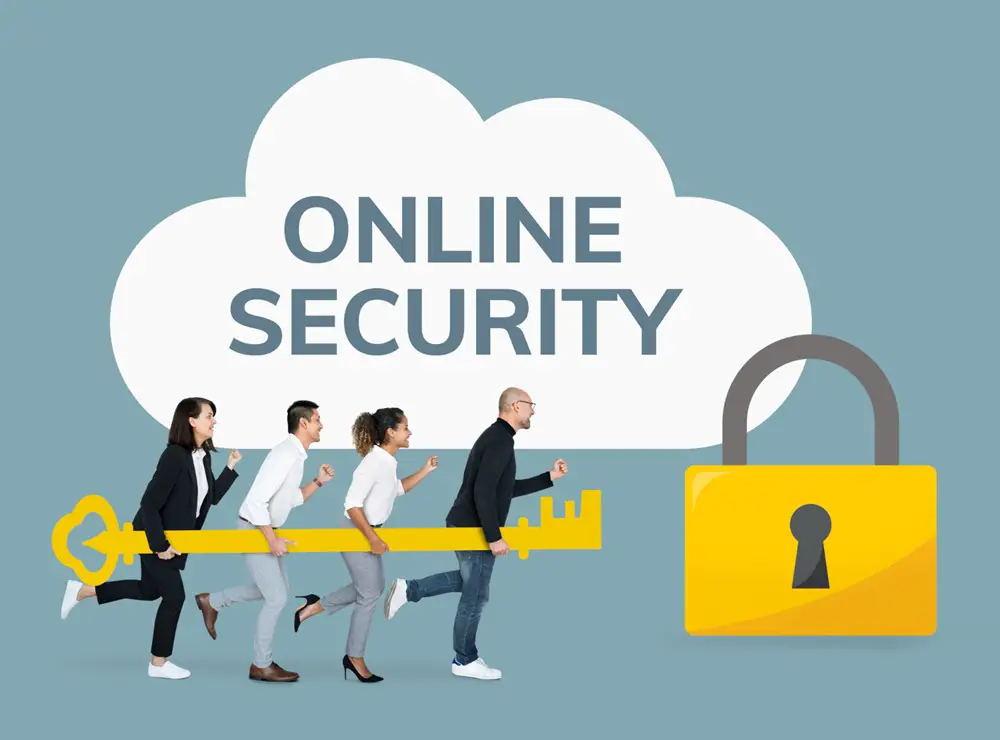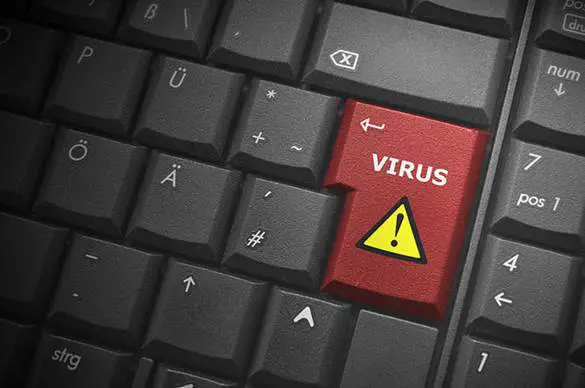The internet is part of our daily lives and it’s important to know the basics of keeping yourself safe online. Here are ten ways you can ensure that your personal information stays safe while surfing the web.

1. Look for a Secure Web Address
Before shopping online or giving any sort of personal information, look at the URL—if the website is secure connection enabled, it will have an ‘s’ after the ‘http’ portion of the URL. An ‘https’ URL tells you the website has an SSL license, meaning your information is scrambled as it travels across the internet.
2. Don’t Provide Personal Information
A credible website will never need sensitive personal information, like your social security, PIN, or bank account numbers. If a site you don’t trust asks you for anything personal, don’t trust it! It could be a phishing scam trying to gain access to your personal information.
[Read also: Is Hacking an Inside Job?]
3. Create Strong Passwords
Make long passwords with at least eight or more characters. For added security, include punctuation, symbols and a mix of upper and lowercase letters. Don’t ever use the same password for all of your accounts and change them at least once a month.
4. Be Wary of Downloads
Don’t ever download a file from a website you don’t trust. There’re many malicious websites out there which let you download corrupted files with viruses and trojans that can infect your computer and steal your personal information.
5. Check for Site Updates
Credible websites are updated often with security measures. Look around to see when the site was last updated. If it’s been more than a couple of months, you might not trust the site.
[Read also: Sites Where You Are Most Likely to Get Hacked]
6. Look for Contact Information
If you’re thinking about purchasing something from a website, look for the company’s contact information, including a physical address and a telephone number. This information is usually in the website’s footer. Don’t assume that a phone number is real—always call and ask questions to make sure the company is legitimate.
7. Be Careful about Emails
Emails can contain viruses and phishing scams, so don’t click suspicious links or download any files from an unfamiliar email address. If you’re unsure about an email, look at the address—if you don’t recognize it, don’t trust it. Report it as spam and delete immediately. Don’t ever provide personal information like passwords or account numbers to anyone over email.
8. Delete Cookies Often
Cookies are small files designed to track your web activity. When you enter information into a site, such as a user name and password, the site uses cookies to remember your information so you don’t have to enter it the next time you visit. Hackers can use cookies to gain access to your accounts, so you should delete them often. Deleting cookies differs depending on which browser you use, but it’s usually found in your browser’s privacy settings.
9. Install Anti-Virus Programs
There are several anti-virus programs designed to protect you from viruses and spyware and alert you when problems arise.
10. Trust your Instincts
If you ever feel like a site isn’t trustworthy, trust your instincts and exit out of it immediately.
Following these simple steps will protect you while you browse the internet, keeping it a safe and convenient place for you.
[Read also: 3 Reasons You should not Take Online Security for Granted]
So how do you stay safe online? Let us know in the comments.




It seems like your personal information and privacy are becoming a bigger concern everyday. We rarely even heard about these things in the early days when the internet was young. Things have certainly changed over the years. It is getting to the point where unless the site is very well known and recognized I tend to think twice before jumping into anything. But, even the big sites are in the news a lot lately for getting hacked or user information stolen and such.
As technology increases so does the risk of your identity being stolen. In the old day, before computers, identity theft consisted of impersonating an individuals actual look. Now all you have to do is get their online information that sometimes is not associated with a face.
Deleting cookies is a great step, in the other case we have to spend more time to load the page whenever we want to comeback there.
Nowadays, some browser have a unique algorithm to detect if the web you visit is trusted or not, encrypted or not, contains malware or not..
thanks for this awesome post..
Thanks for these reminders Russell. One more alternative for deleting cookies is by using Google Chrome’s incognito feature. And also always purchase on trusted sites. If you’re unsure, search about it on Google with a keyword like fraud or something similar.
Thanks for the insight everyone. Most people who read this are the informed people. Unfortunately, identity scams are all aimed at the uninformed who don’t spend much time online. They get ripped off the most, it’s sad.
These are some great tips. If everyone followed these, there would be many less problems with viruses, spyware, and credit card theft.
You are completely right. Virus software companies capitalize of of people ignorance about internet safety. Common sense would save the user a lot of money.
Thanks for the tips, but I don’t really think privacy is a choice if you willing to use services like Google or Facebook.
Yes, Facebook and Google are both data mining companies. They will do anything to get at your information.
The techniques and strategies that you have discussed here on your blog will really help a lot because this will serve as a guide to us who wants to protect our personal stuffs online. Thank you for this very helpful and useful tips.
I am glad you like these techniques and hope you refer back to them often for your internet security needs.
It is really vital to make sure you practice secure online habits. Also to make sure you are teaching your kids secure online usage, as kids are getting more and more online exposure at earlier and earlier ages. Many of them share usage of a computer with their parents, making it vital to teach the entire family to ensure reduced exposure. There are so many scams out there that is becoming increasingly difficult to stay educated on them. The best that you can do is be smart in your usage.
Your right michael. The best rule I follow is if it seems scetchy, then it is!
Also make sure you are also teaching your kids secure online practices when they begin to use the computer. There is a lot of good information out there on secure online practices. Additionally, though, make sure that you are just as careful with papers containing personal information. It really is a great investment for every family to own a good quality paper shredder to dispose of sensitive papers securely.